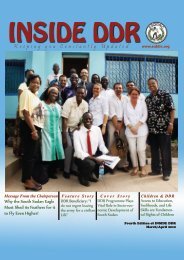Examining Enterprise Capacity - SSDDRC
Examining Enterprise Capacity - SSDDRC
Examining Enterprise Capacity - SSDDRC
You also want an ePaper? Increase the reach of your titles
YUMPU automatically turns print PDFs into web optimized ePapers that Google loves.
Research preparation, including the development of focus group and interview questionnaires,<br />
occurred primarily during the months of March and April 2006. The fieldwork was conducted from<br />
April 2006 to June 2006, with some follow-up field activities occurring in July 2006. The following<br />
locations, communities and organizations were visited:<br />
Location Focus Groups Interviews<br />
Juba, Southern Sudan Lobonok camp GOSS<br />
NGOs<br />
UNDP<br />
Malakal, Southern Sudan<br />
Rumbek, Southern Sudan<br />
Al Fasher, Darfur<br />
Nyala, Darfur<br />
Khartoum<br />
Obel camp<br />
Akot<br />
Pulshume<br />
Blacksmiths Cooperative<br />
Abu Shouk & Al Salaam camps (visit only)<br />
El Seref camp<br />
Jabarona camp<br />
Mandela camp<br />
Wad Al Basheer camp<br />
GOSS<br />
In Juba, the research team worked with graduates of Ahfad University employed by local NGOs and<br />
Government of Southern Sudan institutions. In Malakal, junior academic staff and graduate students<br />
from the Upper Nile University assisted with the facilitation of focus groups and the collection of data.<br />
In Al Fasher, professors and students of the University of El Fashir were part of the research team,<br />
and in Nyala, staff members from a local NGO, run by a well-known graduate of Ahfad University for<br />
Women, assisted with the research. In Khartoum, the IDP focus groups were conducted by graduate<br />
students from Ahfad University for Women. All of the interviews with GOSS officials, NGO and<br />
development agency staff were conducted in English; focus group sessions with IDP communities<br />
were conducted in the appropriate local dialect.<br />
In every location visited, field research with IDP communities was conducted through local<br />
institutions and with the assistance of local research teams. Linkages were formed between and<br />
among various Sudanese universities and NGOs for the purposes of facilitating the research project.<br />
Detailed training was provided to all interviewer/facilitators in techniques and approaches. Reliance<br />
on local institutions and research teams provided a bridge to overcome diverse institutional,<br />
language and cultural gaps often found in conflict segregated post-war Sudan. Other than one non-<br />
Sudanese lead researcher from York University, all of the researchers who participated in this study<br />
are Sudanese, representing all corners of the country, making this a truly Sudanese field study. No<br />
doubt this was a key factor in the team’s acceptance by many IDP communities who are living<br />
extremely difficult existences. We are grateful for this acceptance.<br />
17


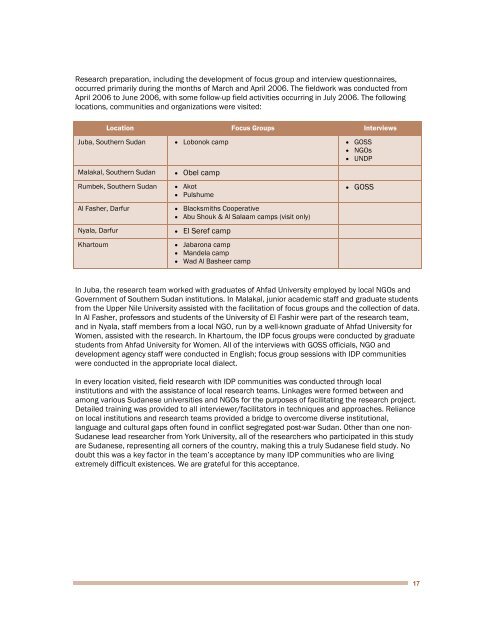
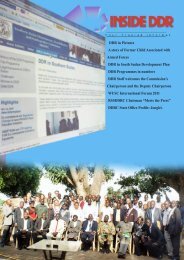
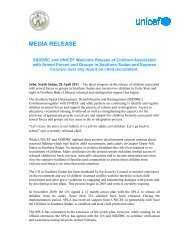
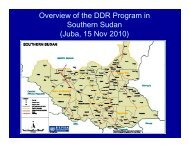
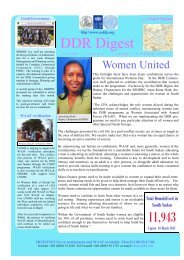
![Download here [975KB] - Republic of South Sudan DDR Commission](https://img.yumpu.com/10592740/1/184x260/download-here-975kb-republic-of-south-sudan-ddr-commission.jpg?quality=85)
